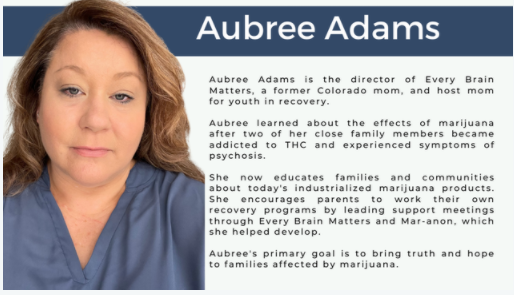|
APRIL 2, 2023
|
|
"Debt and Spending
Reform" with Phil Kerpen/ |
|
"Every Brain
Matters" with Aubree Adams |
|
|
|
FULL TWO HOURS |
 |
|
|
|
|
|
|
|
|
|
|
About
our guest: Phil Kerpen |
| |
|
 Phil
Kerpen, aleading
free-market policy analyst and advocate
in Washington. He was the principal
policy and legislative strategist at
Americans for Prosperity for over five
years. He previously worked at the Free
Enterprise Fund, the Club for Growth,
and the Cato Institute. Kerpen is also a
nationally syndicated columnist,
chairman of the
Internet Freedom Coalition, and
author of the 2011 book
Democracy Denied. Phil
Kerpen, aleading
free-market policy analyst and advocate
in Washington. He was the principal
policy and legislative strategist at
Americans for Prosperity for over five
years. He previously worked at the Free
Enterprise Fund, the Club for Growth,
and the Cato Institute. Kerpen is also a
nationally syndicated columnist,
chairman of the
Internet Freedom Coalition, and
author of the 2011 book
Democracy Denied.
Phil
Kerpen is the president of American
Commitment, dedicated to restoring and
protecting the American Commitment to
free markets, economic growth,
Constitutionally-limited government,
property rights, and individual freedom.
They engage in critical public policy
fights over the size and intrusiveness
of government through direct advocacy,
strategic policy
analysis, and grassroots mobilization.
Working with key partners, American
Commitment delivers timely, effective
public policy research to the broader
free-market movement. We are dedicated
to restoring and protecting the American
Commitment to free markets, economic
growth, Constitutionally-limited
government, property rights, and
individual freedom.
https://www.americancommitment.org/
|
| |
|
More Debt Without Spending Reform Is
Dirty | American Commitment |
| |
| Previous shows:
|
| |
|
MORE
DEBT WITHOUT SPENDING REFORM IS DIRTY |
|
By Phil
Kerpen |
|
|
Before
Republicans agreed to elect Kevin
McCarthy Speaker of the U.S. House of
Representatives, a handful of his
colleagues demanded the implementation
of a fiscal framework to rein in federal
spending.
The threat of spending reduction has,
however, launched a full debt ceiling
“default” panic. The spending interests
are
trying to cast conservatives as
unreasonable and spendthrift Democrats
as saviors of our economy for favoring
no-
strings-attached increases in federal
debt. In the Orwellian world of
Washington, the media and other
Democrats call what they want a “clean”
debt ceiling increase. But what could be
dirtier than jacking up the limit on the
national credit card with no plan to
reform spending?
The
rhetorical strategy they deploy to
continue reckless spending is to insist
the alternative to a naked debt ceiling
increase is “default.” But a federal
debt default is not a risk as long as
there is more money coming into the
federal government on a monthly basis
than is owed in interest. Over the past
decade, paying interest on the debt
consumed about 10 percent of monthly
federal revenues, and in no month
reached 20 percent. That means a
scenario in which Congress does not
raise the debt ceiling and the federal
government is forced to operate on a
cash basis presents no genuine risk of
default.
It would be massively disruptive – much
of the government would necessarily shut
down and bills would not be paid in a
timely fashion. But defaulting on the
debt would not occur unless Treasury
made the irrational decision not to pay
bondholders with current
revenue.So-called experts who insist on
“correcting” politicians who refer to a
debt ceiling lapse as a shutdown are
wrong, and Congress could take this
deception off the table by passing a law
clarifying that Treasury is required to
pay bondholders first.
But while the “default” crisis from a
lapse in the authority to issue
additional debt is fake, the risk of a
real debt crisis is
visible on the horizon.The latest
long-term budget projections from the
Congressional Budget Office show debt
reaching a new all-time high of 107
percent of GDP in 2031 and soaring to
185 percent of GDP in 2052. This is
driven almost entirely by federal
spending, which is expected to remain
higher than before the pandemic even
after much of the one-time spending
ends. Spending then significantly rises
starting in 2025 until it reaches 30.2
percent of GDP in 2052.
Revenues for 2022 came in at 19.6
percent of GDP, the second highest level
ever recorded – contrary to the
predictions of Trump tax cut opponents –
and projected revenues are expected to
remain well above the historical norm of
17.3 percent of GDP and remain in the 18
to 19 percent range. Congress must
restrain federal spending before we face
a real debt crisis in which we actually
cannot afford to pay our bills.
Every major spending and debt deal in
Congress since 1985's
Gramm-Rudman-Hollings Act has included
negotiations
over the debt ceiling. House
conservatives were right to demand
spending reforms as a condition for
raising the debt, and they should hold
firm even if it means a government
shutdown. The only clean outcome is one
that sets spending on a
more sustainable path. |
|
HOUR 2 |
|
"Every
Brain Matters" with Aubree Adams |
|
 |
|
 |
|
|
Our
Mission
Every Brain Matters is a community and a
unifying
alliance of organizations and
individuals that educate about the
dangers of marijuana and the drug
culture expansion.
We work together to bring about a
cultural movement through
advocacy,
support/recovery,
science, public awareness and
encouraging the use of
EBM merchandise to promote optimal
brain and environmental health.
Our Vision
A worldwide coalition where we promote
the health of our children, environment,
and our future by decreasing the demand
for drugs, empowering our families and
communities, and supporting drug
prevention, education, and recovery
efforts. In time, the culture of Every
Brain Matters will be accepted in a
majority of households, schools, and
communities. |
|
|
|
JOIN OUR ALLIANCE |
| |
|
Key
points: |
-
Marijuana policy should be driven
by science. Drug policies should
be based on reputable science, not
by profit-driven entities that
support drug promotional policies.
-
The best harm reduction is drug
prevention. Keeping drugs
illegal, along with providing
education, decreases demand and use.
Increasing accessibility increases
use.
-
Marijuana (drug) use affects more
than just the user. It causes
harm to innocent people, such as
victims of drug-impaired driving,
child neglect or abuse, second hand
smoking, and accidental ingestion.
-
The Marijuana expansion is
increasing the mental health and
addiction crisis, and we do not have
resources available. Marijuana
is a causal or risk factor in the
addiction, mental illness, and
homelessness crisis, as well as
violence.
-
Marijuana state regulatory
policies have failed. The FDA
approves medications and states do
not have the necessary resources or
knowledge to address this safely.
-
The illegal marijuana market has
grown exponentially as a result of
legalization.
-
Marijuana production is an
environmental disaster, which
interferes with the responsible
stewardship of the planet. Growers
divert streams, rob our water
supply, and strain the electrical
grid. Marijuana grows, which become
more prevalent in legalized states
on Federal lands, are cutting down
forests, using banned pesticides and
rodenticides, killing species, and
depleting resources with no
accountability.
-
It causes widespread costs and
societal harms, affecting all
aspects of our lives. Increases
car and health insurance, increases
homeless, increases government
spending (taxes), public health
costs, loss of productivity,
increases crime and violence, loss
of potential, workplace safety
costs, and rising business and
housing costs.
-
No use of marijuana in pregnancy
or under the age of 25 is safe.
It is well established that
marijuana use is harmful to the
developing brain.
-
There is no proof high potency
marijuana is safe for adult use.
Cannainboind hyperemeisis syndrome,
cannabis induced psychosis, and
cannabis uses disorder rates are
increasing.
History: The Every Brain Matters
name was introduced by Dr. Christine
Miller at the first rally to oppose the
legalization of marijuana in Sacramento,
California back in 2016.
It inspired many families to become
educated about marijuana, and as a
result, became an initiative of Parents
Opposed to Pot.
Please join us at this
link.
contact us at:
info@everybrainmatters.org
|
| |
| |
|
|